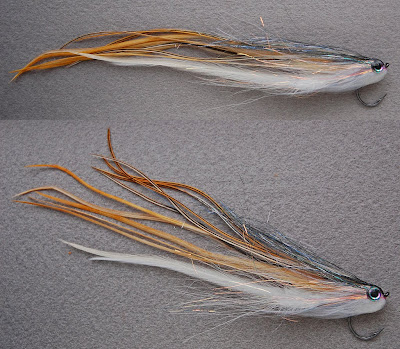Yesterday I got a nice surprise in the mail... I received a beautifully tied foam diver and some samples of Mustad 32786BLN jig hooks from Bill Ninke (aka wildwilly on Stripers Online forum.) Foamberg, as the fly is called, is a foam version of the classic Dahlberg Diver, and it looks like a perfect fly for many predatory fish species.


I took some pictures of various hooks. All of my jig-hook flies are tied on either The Fly Shop TFS 5444 hooks or Gamakatsu 60 degree models. I have never tried Mustads, though. As you can see from the photo above, Mustad 32786BLN hooks are shorter in length and have wider gap than comparably sized TFS 5444 hooks. The finish, sharpness and consistency between TFS and Mustad hooks are very similar.
On the bottom photo you can see how TFS hooks compare size-wise to the more popular saltwater fly hooks.
















